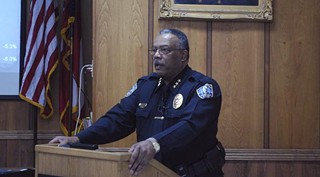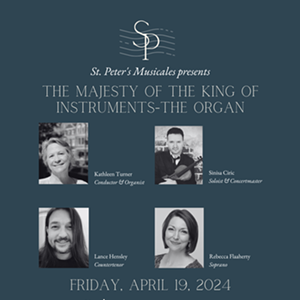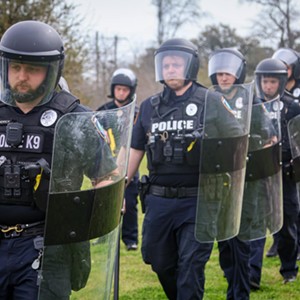At a press conference last week, Interim Police Chief Willie Lovett revealed a sizeable decrease in crime in Savannah during 2009. And as an aside, he also seemed to be making the case that he should no longer be just an interim chief.
"The first part of 2009 was a little rough for us in terms of crimes, however in the fourth quarter things took a totally different turn," said Lovett. "And because of the actions of our officers during the fourth quarter, we were able to meet and exceed our goal."
Lovett had initially set a goal of a five percent total reduction for 2009. "As it turns out we had a total reduction of crime of 6 percent - 5.3 percent property crime and 12 percent violent crime," he said.
Indeed, the numbers show that "the violent crime total is the lowest it's been in the last 20 years," Lovett said. (All data before the 2005 merger of the city and county departments reflects only incidents in the city proper.)
While violent crime is down overall, however, the numbers show a slight increase in homicide (four more in 2009 than 2008) and rape (9 more in 2009 than 2008).
The overall reduction in crime over the last quarter of 2009 coincided almost exactly with Lovett's tenure following the resignation of former chief Michael Berkow.
Not only that - Lovett also took the opportunity to point out that the last time Savannah saw a decrease in violent crime, in 2006, he was also serving as interim chief, that time after the departure of former chief Dan Flynn.
While Lovett refused to directly blame previous chiefs - "I can only say that our past leadership was different from mine" - he did say that the main reason his approach seems to result in lower overall crime is the way he decentralizes command and delegates authority to the precinct commanders.
"The precinct commanders now have the authority to be the chief of their precinct. They have authority to make changes when necessary, they have the authority to take corrective action. I think that's a big part of it - allowing them to make decisions at their level," he said.
Lovett said that when precinct commanders are allowed to be part of the decisionmaking process, "they have ownership and they want to work towards attaining our goals. That's one of the things that has been very different."
Another possible reason for the drop in crime, quite simply, is the apparent fact that Chief Lovett is better liked by rank and file police officers than previous chiefs, a conclusion supported by various off-the-record conversations with department personnel.
Lovett doesn't deny that morale has improved at the precinct level.
"The higher the morale, the more the officers want to do and the more they're willing to do. It doesn't always have to be the sergeant or the lieutenant out there - the officers can take the initiative."
In another negative reflection on the Berkow tenure, which began in November 2006, there was an increase in crime throughout 2008. This means that while the 2009 numbers do reflect a decrease in crime, in some categories we're still playing catch-up to get to pre-Berkow levels.
The violent crimes which showed the greatest decrease were street robbery (down to 477 incidents compared to 620 in 2008, roughly 23 percent), aggravated assault with a gun (down to 198 from 212, roughly seven percent) and commercial robbery (down to 106 from 116, roughly nine percent).
The nonviolent crimes which showed the greatest decrease were commercial burglary (down to 351 incidents from 545, roughly 35 percent), larceny from yards and buildings (down to 2546 incidents compared to 2883 in 2008, roughly 12 percent), and residential burglary (down to 2301 incidents from 2429, roughly five percent).






























